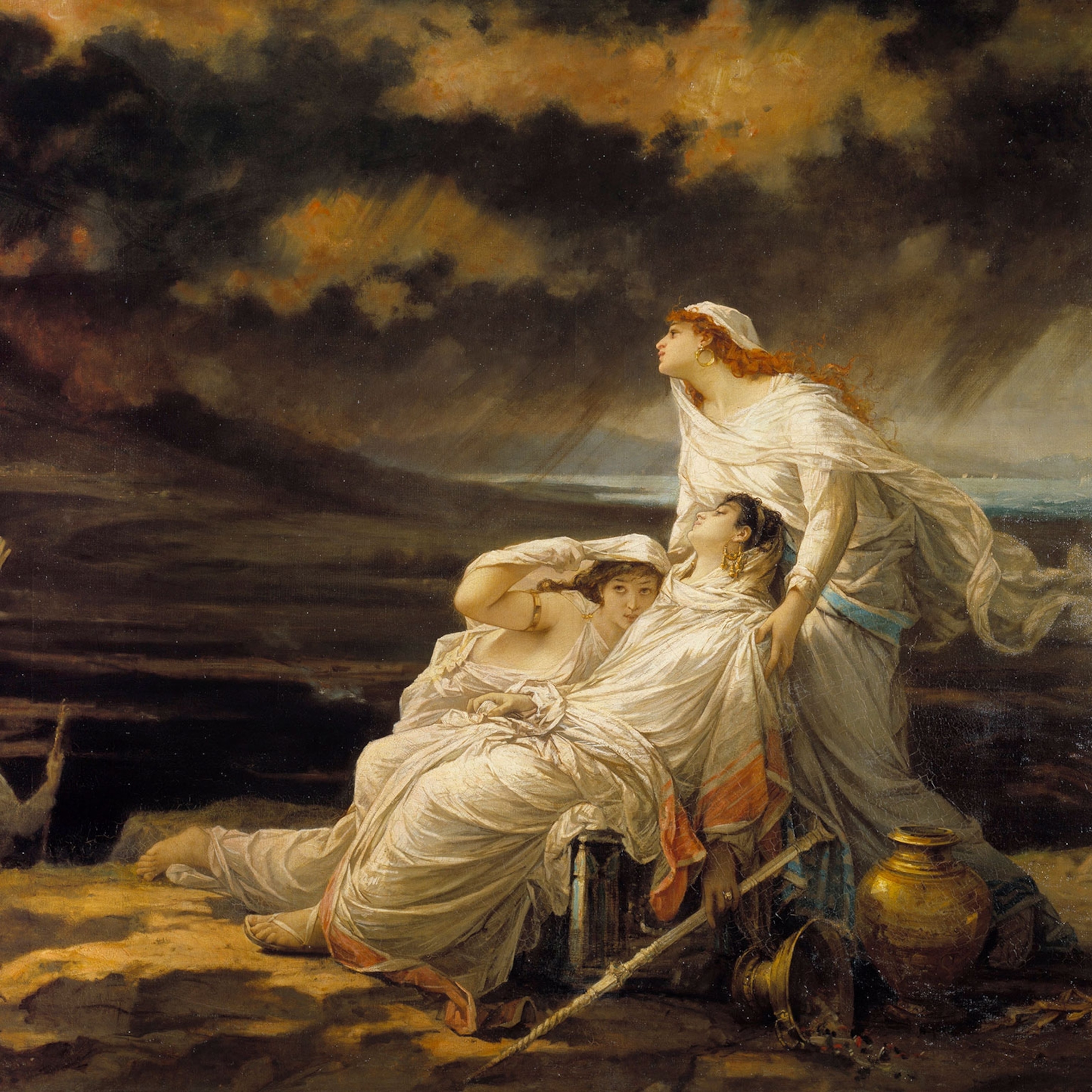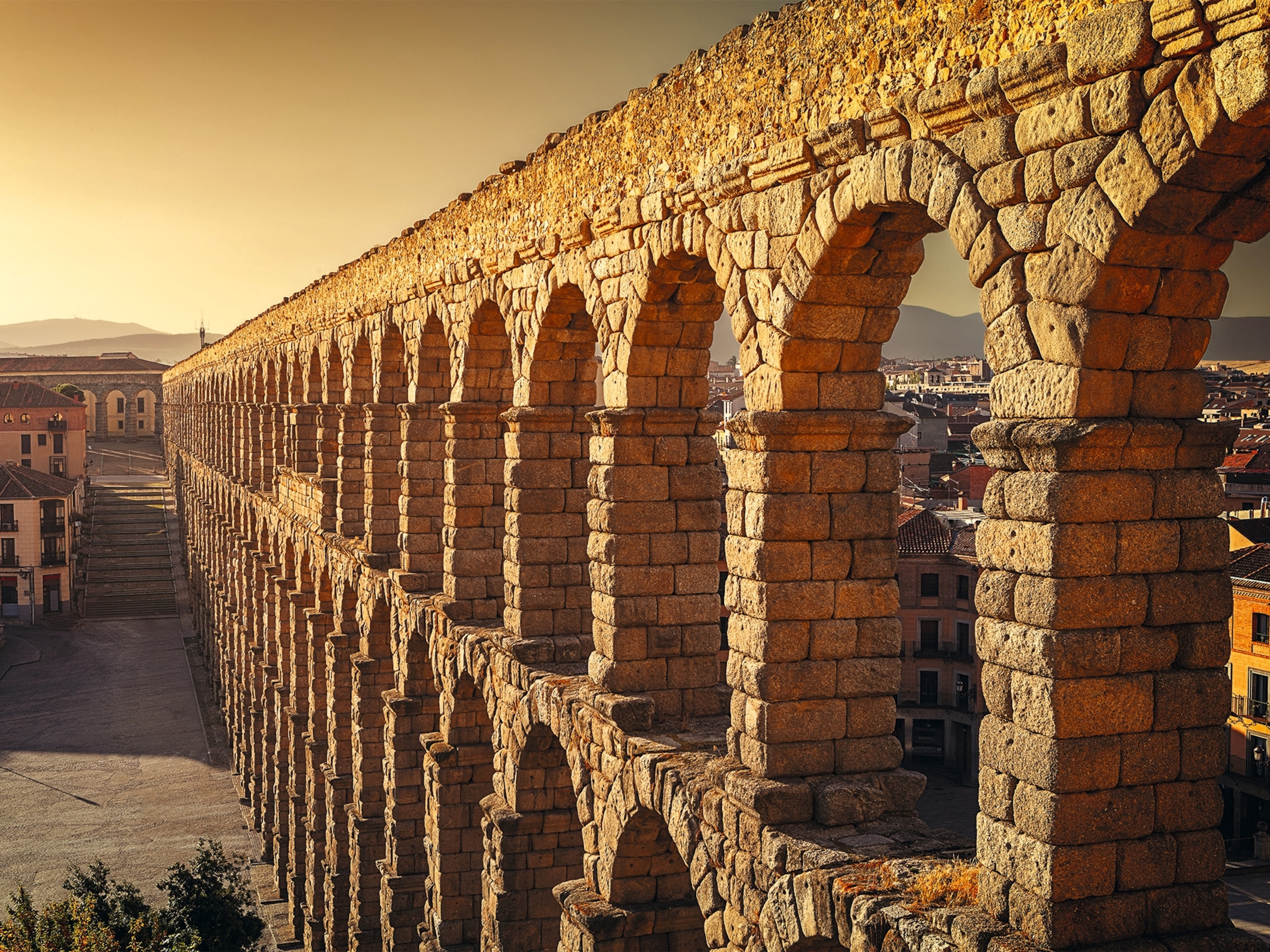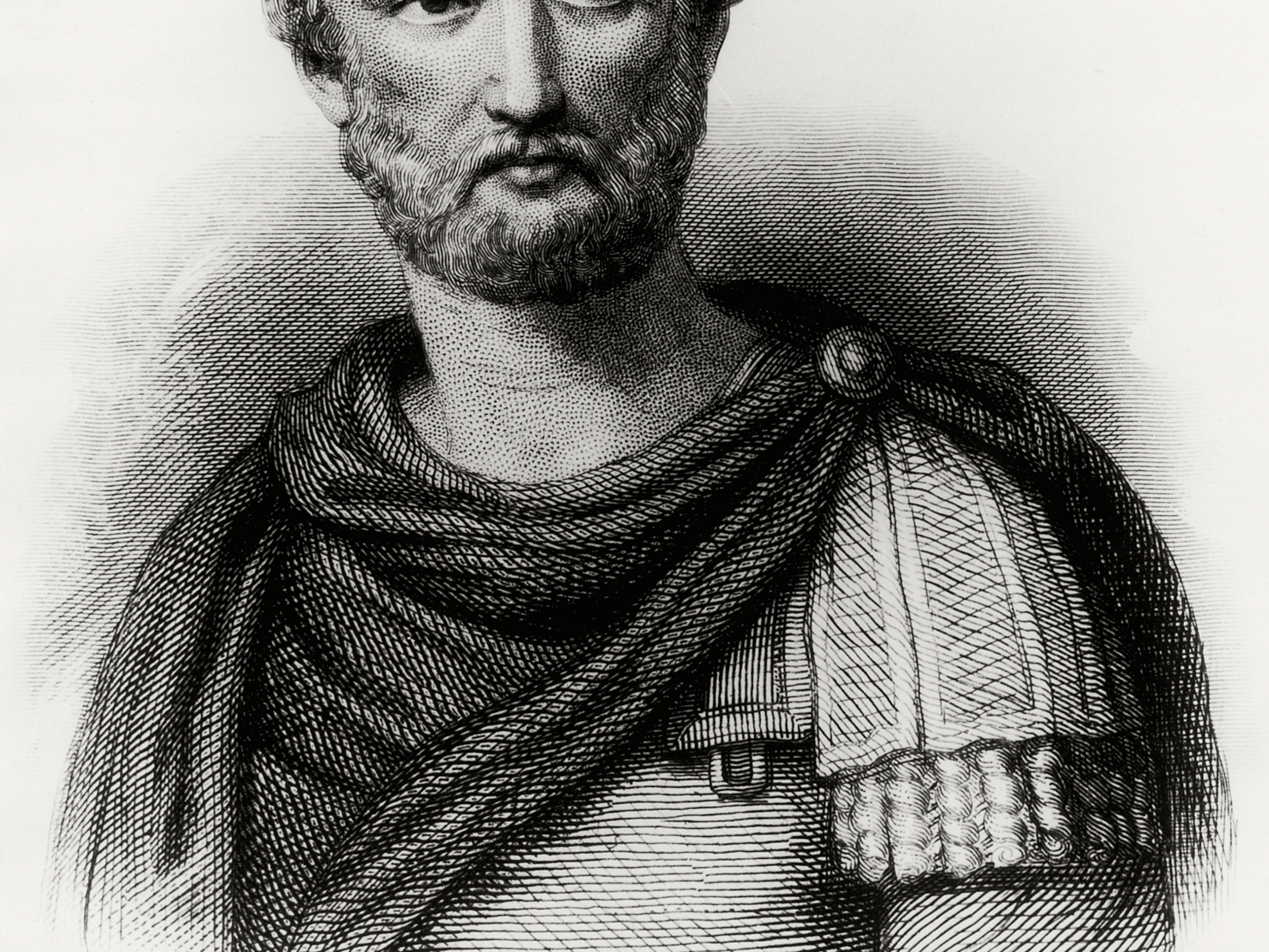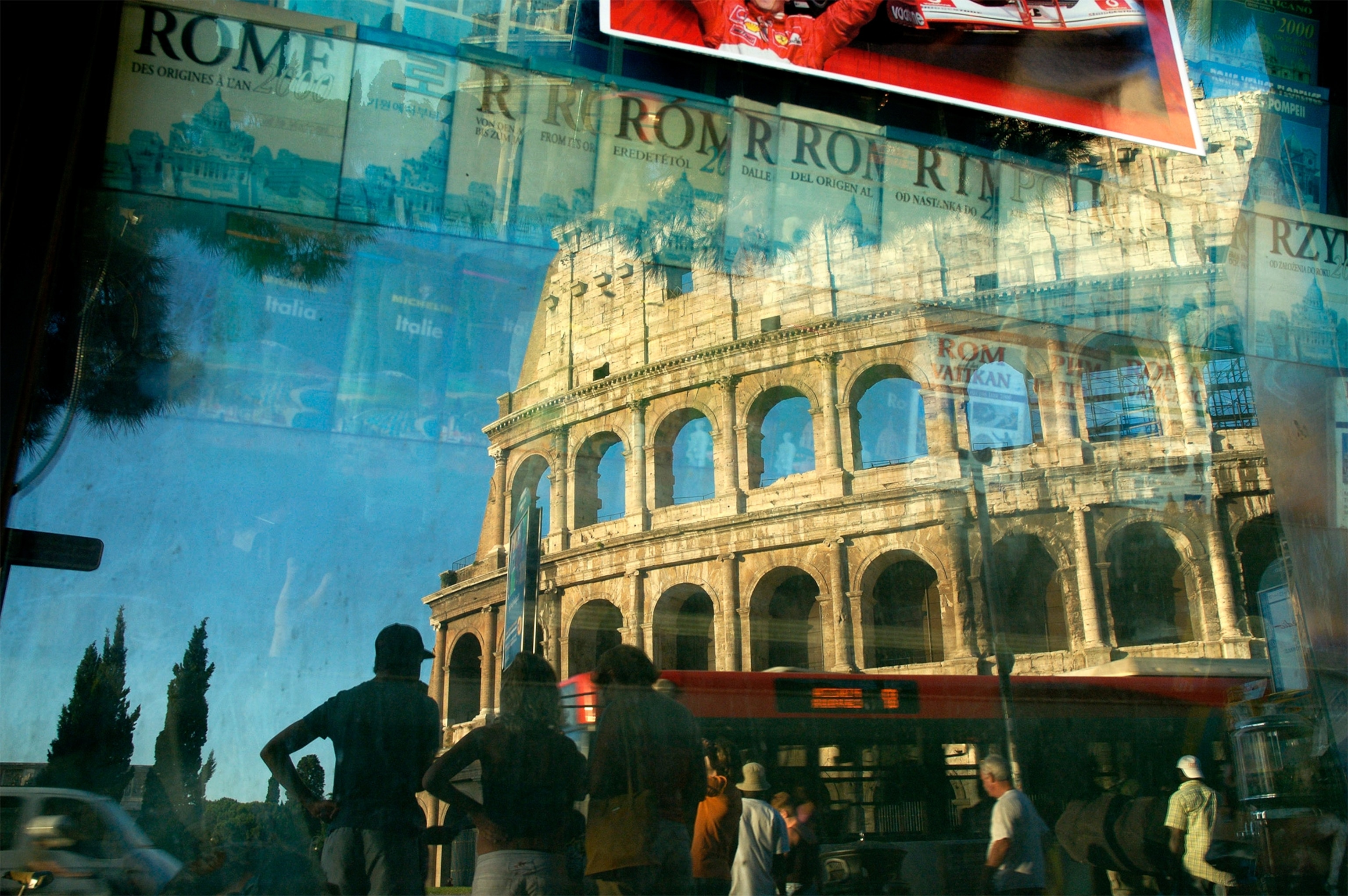
For Italians, a Lingering Superiority Complex About Roman Empire
British author says Italy is a complex, sometimes infuriating, country.
Say the word Italy, and we think of sun-kissed piazzas, stars over the Mediterranean, spellbinding museums, and mouth-watering food. But as veteran Guardian and Financial Times correspondent John Hooper explains in his new book, The Italians, it’s a complex, sometimes infuriating, country where the past is always present.
Taking time out from his book tour in New York, he talks about the Ministry of Simplification, why many Italian high school kids wear special belts under their clothes to help them in exams, and how Silvio Berlusconi’s “bunga bunga” style damaged Italy’s standing abroad.
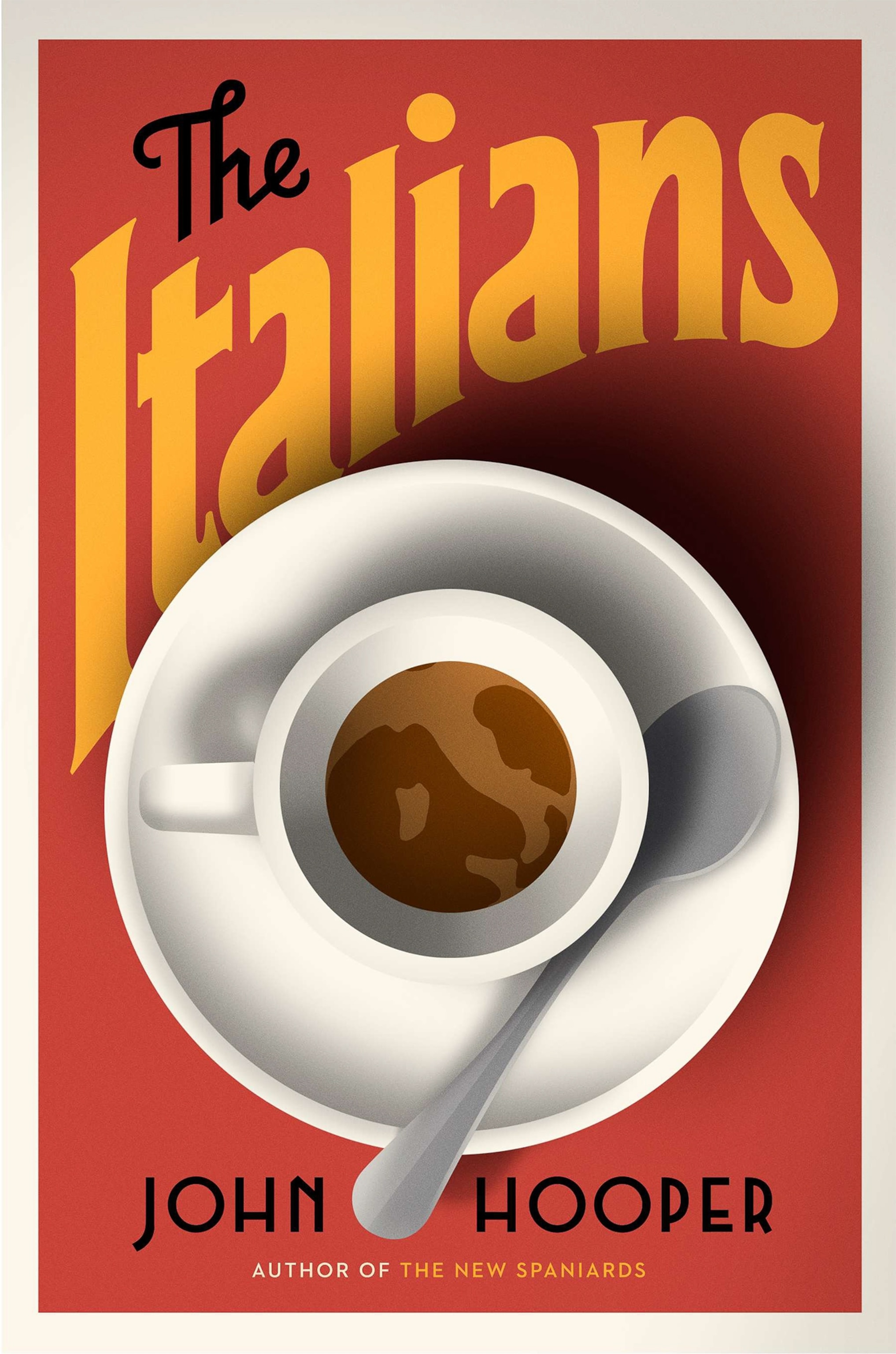
You call Italy “the Beautiful Country.” Yet in recent years it’s been associated with bunga bunga parties and corruption. Does Italy have an image problem?
Definitely. I think in two ways. Berlusconi did a lot of damage, more damage I suspect than most Italians realize, by making the country look frivolous and irresponsible at precisely the time when the crisis in the euro zone needed all the countries involved to be responsible. Secondly, people have realized that the country has not changed very much for a long time, and that is the root of some of the economic problems they’ve got.
One of the things that jumped out at me is how young a country modern Italy is—younger than the USA. Yet it’s also an ancient civilization. Unpack this contradiction.
I think one of the places where they connect is in the Italian psyche. There is this consciousness of a long and at times glorious past. They know that their ancestors created the Roman Empire and the Renaissance, which changed Western civilization for good, and that there was a glorious and immensely courageous independence struggle in the 19th century.
On the other hand, there have been centuries in between of disunity and oppression by foreigners, all of which creates a tension. On the one hand, there’s a tendency for people to look back on the glories of the past and think they’re maybe a bit better than other people. That’s the superiority complex, something Italians have in common with the Greeks.
On the other hand, there is the inferiority complex that comes from knowing that the country was unable to get its act together to become a country until the 19th century. England has been England since the 11th century. France has been France for even longer. But Italy has only been Italy for less than 150 years. So I think there’s always a feeling of fragility.
How has geography shaped the Italian character?
Not as much as history. I make the point in the book that if geography were a determinant factor, then there would be a huge contrast between easterners and westerners, because the country is divided down the center by the Apennines. But the bigger division has been north and south, and that’s a division due to history. For hundreds of years the south was under foreign rule, so southerners were very much cut off from northerners. In between north and south was also the papal state, and that also helped cut northerners off from southerners.
Italy is famous for its arcane bureaucracy. Tell us about the Ministry of Simplification.
[Laughs] There still is one! Matteo Renzi, the current prime minister, once told me that one of his aims was to make Italy a simpler place. All kinds of things are unnecessarily complicated, whether it be laws or judicial or administrative procedures. If you’re driving in Italy, you come up against these signposts that no human being could conceivably read driving past at anything above five miles per hour. There can be 18 different things pointing in different directions. How people are expected to read them all, God alone knows!
You have a fascinating chapter about Pinocchio and the culture of cheating. Tell us about cartucciera.
It’s a symptom of the tolerance of cheating in exams that these things are openly available. They are like cartridge belts you can wear next to the skin, and inside them are what are known as bigliettini, little crib notes to help you with your exam. There is now even a digital equivalent. You hand in your cell phone as you go into an exam, but you’ve got two!
An American friend who’s married to an Italian told me that she picked up her daughter from school after an exam one day. She asked how the exam went, and the daughter said, “Oh, it was easy because it was English, and as I’m bilingual, I was able to finish the exam at about the halfway mark, after which I did Giovanni’s.” Her mother was horrified. “What do you mean you did Giovanni’s?” she cried. “It’s meant to be a test of his ability, not yours!” But then she started to feel a sense of pride in her daughter. And that was the point at which she knew she’d become Italian.

What is the role of the Roman Catholic Church today? Has Pope Francis shaken things up as much as the news suggests?
I think there is a relationship between Italians and the Roman Catholic Church that goes beyond the effect of any one pope. Certainly Pope Francis is popular. He’s seen as being much closer to the reality of the lives of ordinary Italians. But even people who aren’t religious in Italy take pride in the fact that the Roman Catholic Church, which is a global entity, is so closely associated with their country.
There’s also a feeling that the Roman Catholic Church lays down a moral code, which, depending on your outlook, you either do or do not subscribe to. But there’s not much thought given to any other moral code. For most of Italy’s history, Protestantism or other religions have been non-existent.
That’s changing. All of a sudden, the Roman Catholic Church’s spiritual hegemony is being challenged, particularly by Islam, as more and more immigrants come in. Large numbers of immigrants also come from Eastern Europe. They’re Christians, but they’re not Roman Catholic, they’re Orthodox. All of that is creating a much more confused picture than has existed hitherto.
You say that the family is the bedrock of Italian society. Is that still true?
It is, but it’s a different kind of family. Family ties have remained astonishingly strong. Italians have disputes within families like everybody else, but there’s a loyalty to the institution that surpasses anything I’ve encountered, even in Spain, which is another Latin society with very similar configurations. But the old ideal of the numerous family, with Mama in the kitchen, has gone.
Today’s family is very likely to have one child, maybe two, very exceptionally three, because women have found it impossible to combine the roles of mother and wife and caregiver and professional. In Italian or Latin societies, women are expected to do a job, to keep up the family income, to look after the older members of the family, to be wives, which usually involves doing the cooking and having children and bringing them up. And it’s too much! Because of that, women have had to cancel out one role. And the role they’ve been most likely to cancel out had been that of mother, the one over which they’ve got greatest control. So the birth rate has dropped massively. That’s true in other southern European countries too.
In 2013, police in Italy claimed that the arrest of more than 50 leading Mafiosi had delivered a “mortal blow” to Cosa Nostra. Is that just hype?
I wish I could have had a free meal every time police and prosecutors have declared Cosa Nostra suffering a mortal blow since I started covering Italy. [Laughs] But I think they themselves know that it’s hyperbole. The organization is just too well rooted. I think it has been weakened in recent years, but it’s retrenched, and now seems to be in a period of lying low and rebuilding under a new leader. A specialist in the Mafia once said to me, the time to worry about Cosa Nostra is when you don’t hear anything or read any news about it. We’ve not heard much news about it for a while. So it’s probably time to be worried.
The Amanda Knox trial brought the Italian legal system to the world’s attention. You say its main purpose is to ensure that people get off. Explain.
[Laughs] It often seems that way. People get three trials. If they’re convicted on the first trial, then they automatically appeal. So the second time round, it’s a retrial. Then a further appeal can be made on legal points to the Supreme Court. The Supreme Court can then order a retrial. That’s what happened in the case of Amanda Knox.
Already, you’re up to four hearings, but that can prompt a further appeal to the Supreme Court, so it’s not that uncommon for there to be five trials and appeals, by the end of which some of the witnesses have forgotten the evidence or died. [Laughs] There was a famous case back in the 1980s, which involved the trampling of some orange groves by Garibaldi’s troops during the War of Unification. It took over a hundred years to be resolved!

One of the most famous Italian faces of recent years is that of the soccer star Mario Balotelli. How is immigration changing Italy?
Hugely. And it’s been very rapid. The country I arrived in, in 1994, was largely homogeneous, racially. Italians weren’t used to living with people of other ethnicities. Today, the number of foreigners living in Italy is comparable to that in most other European countries. A mitigating factor that has helped integration is a consciousness that not so very long ago Italians were emigrants themselves, heading off to the factories of northern Europe or America, both north and south. Almost no family in Italy south of Rome doesn’t have a member abroad somewhere. And the polls show that the degree of tolerance of migrants increases as you go south. The most tolerant city in Italy is Naples.
On the other hand, there has been a lot of adverse reaction to the very visible immigration coming via places like Lampedusa and other southern islands, which are easy to reach from North Africa. So the public perception is that migrants are people who come from sub-Saharan Africa and the Middle East. But the statistics show that they actually represent a small fraction of the total. The vast majority come in on tourist visas and just overstay.
We can’t talk about Italy without talking about food. Is it as central to the Italian way of life as ever?
I would say almost more essential to its identity than it was a few years ago. You don’t have to go back too far to a period when Italian food was not taken very seriously in the rest of the world. When you went to a trattoria, you expected spaghetti and cheap Chianti. But in recent years Italian cuisine has conquered the world. When I go to London or New York, I don’t have to explain to people what a caffè macchiato is. Twenty years ago people would have stared at me blankly.
Food also has a very important function in Italian society. It’s what brings together the family in the evening, or on Sundays. It’s also often the necessary glue for a business deal. Many Italians will tell you that they only really trust somebody in a deal when they’ve sat down and had a meal with them and shared a bottle of wine. And though it has been taken to new levels internationally, with chefs like Giorgio Lochatelli, in London, the foundation of Italian food is still the family. The idea of how to make a particular dish is carried on from generation to generation and becomes part of the identity of the family.
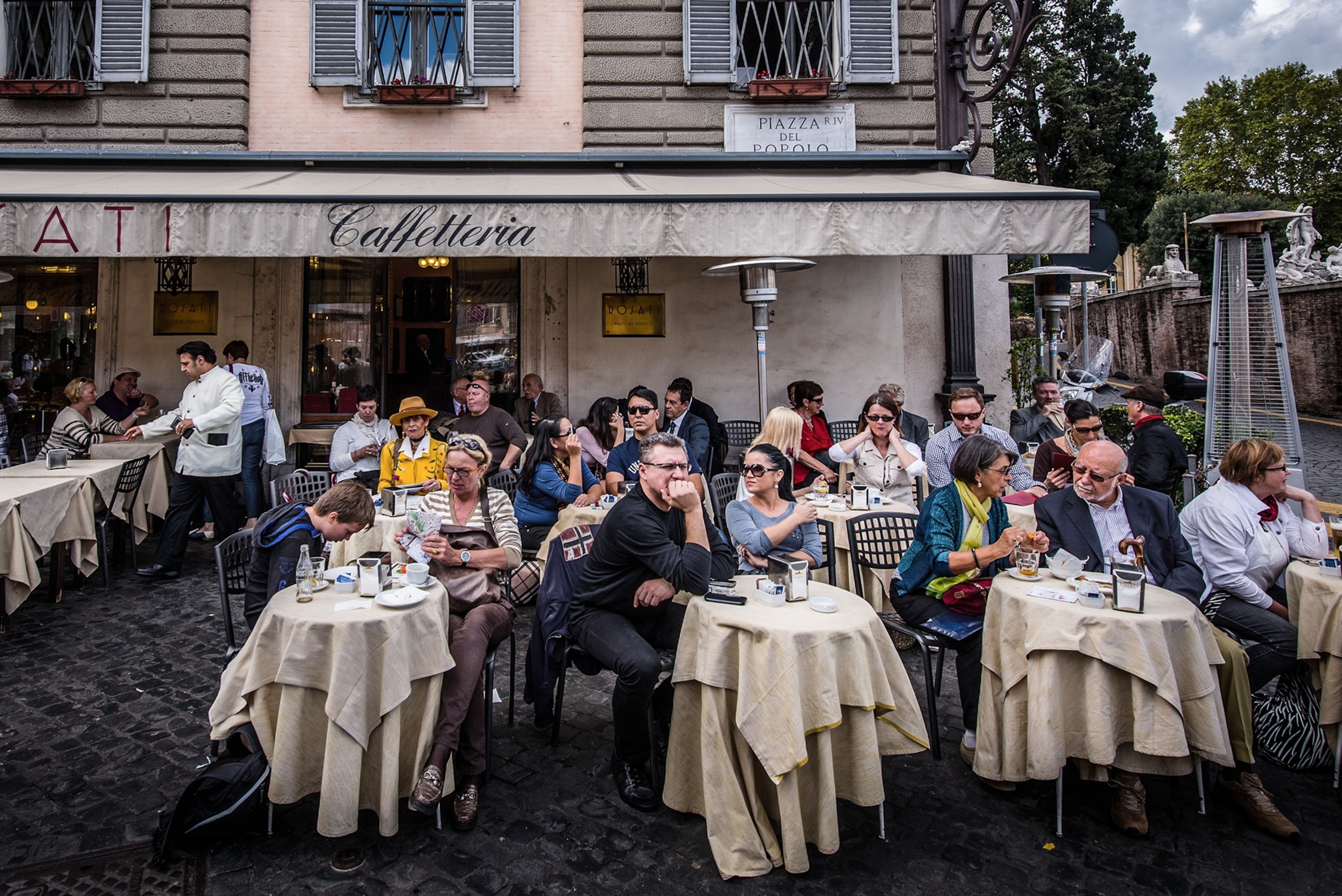
You’ve lived in Italy for many years. What do you love—and dislike—most about it?
The thing I love most is an aspect of the idea of bella figura—of worrying about your appearance to the rest of the world, which is the ability of Italians to put a good face on adversity. I remember once being in a restaurant, and a young woman in a white dress was going up a flight of stairs. She tripped and spilled an entire plate of spaghetti and tomato sauce all over the front of her beautiful white dress. Her reaction was to stand there and laugh. That captured the feeling that no matter how bad things get, you’ve got to put a brave face on it and not take it too seriously. I find that a very endearing characteristic of the Italians.
The thing I like least about them is another aspect of bella figura—a tendency to turn away from whatever is bruto, or ugly. There are subjects that are simply not discussed. For example, there’s very little discussion of the horrors of war or things like disability. In our block, there’s a woman who has been very seriously disabled for many years. But you never see her. And I find that unhealthy. So, two aspects of the same thing: positive, but also negative.
Simon Worrall curates Book Talk. Follow him on Twitter or at simonworrallauthor.com.


